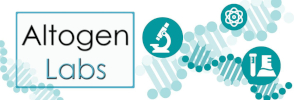Publication [Download PDF]: Tyulyandina, A., Harrison, D., Yin, W. et al. Invest New Drugs (2017) 35: 127. https://doi.org/10.1007/s10637-016-0404-1
Ovarian cancer is notorious for its poor prognosis; five-year survival rates for are 40% and 18% for stages III and IV, respectively. Ovarian cancer classifications are defined by the origin cell types and include papillary serous histology, mucinous, endometroid, clear cell, transitional cell and undifferentiated subtypes. Surgical resection and chemotherapy are standard ovarian cancer treatments. First line chemotherapy is typically a combination of paclitaxel and carboplatin and has remained the same for over 15 years. While initial response rates are approximately 80%, recurrent disease is fatal in most patients. Tyulyandina et al. (Investigational New Drugs, 2017) presented preclinical data for alofanib (RPT835), a novel small-molecule allosteric inhibitor of fibroblast growth factor receptor 2 (FGFR2) with antitumor activity against ovarian cancer in combination with platinum based cytotoxic agents.
FGFR2 is upstream of the MAPK, AKT1 and RAS signaling pathways. Its abnormal upreguation via either amplification or high-level polysomy is correlated to advanced serous ovarian cancer. In order to investigate the effects of alofanib in ovarian cancer, a series of in vitro and in vivo experiments were performed using SKOV3 cancer cells with the help of Altogen Laboratories. SKOV3 cell lysates were analyzed via automated western blotting (Wes) for FGFR1-3 protein levels; it was found that FGFR1 and FGFR2 but not FGFR3 were expressed. SKOV3 cells were confirmed to demonstrate a basic FGF-mediated increase in proliferation which was inhibited by alofanib at a GI50 value of 0.37 µM/L. SKOV3 xenografts were established in immunocompromised mice and treated daily with a combination of alofanib with paclitaxel/carboplatin. Tumor size, vessel density (CD31) and Ki-67 histological staining results demonstrated an alofanib-mediated inhibition of tumor growth, angiogenesis and cell proliferation. The lack of death and body weight loss in the mice suggests that alofanib does not affect toxicity of the regimen. Overall, this study supports the concept of using FGFR inhibitors to augment traditional ovarian cancer chemotherapy to potentially improve patient outcome and overcome platinum resistance.
Altogen Labs is a contract research organization (CRO) that specializes in preclinical research services for pharmaceutical, academic and biotechnology needs. As with this 2017 alofanib study, examples of such services range from in vitro to in vivo experiments including protein expression analysis, cell proliferation and death assays, histological studies, drug screening, IC50 evaluation, xenograft studies, RNAi targeting and delivery and more with over 100 cell models to choose from. This Austin, TX based company has a dedicated team of experienced scientists to advise, perform and analyze experiments in a Good Laboratory Practice (GLP) setting. Altogen Labs offers instant quotes at competitive pricing and is committed to delivering high quality and efficient results.
